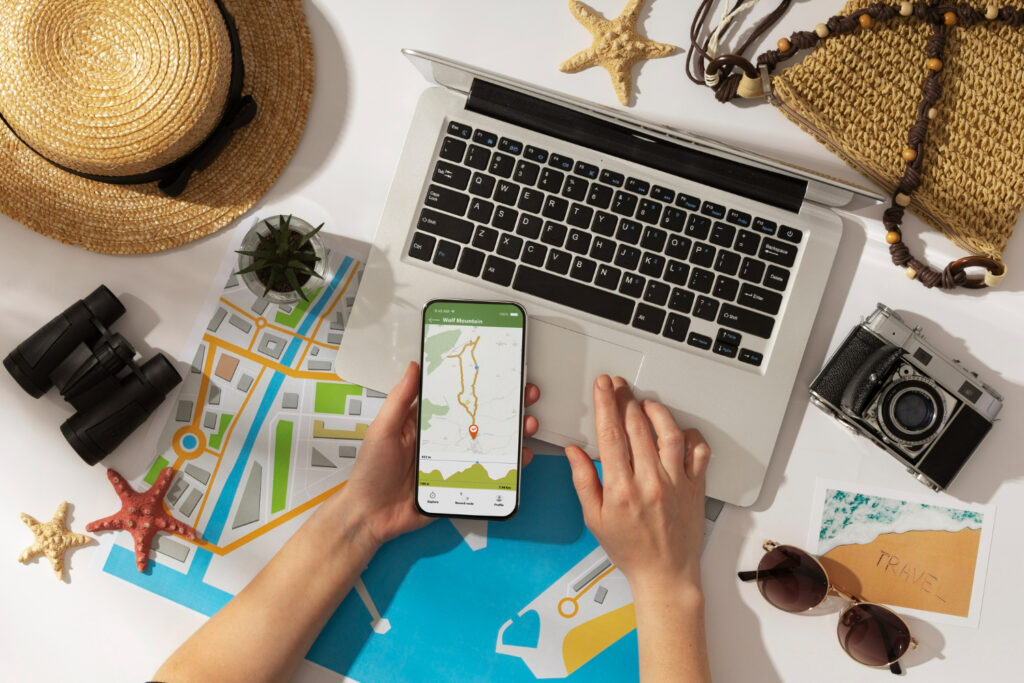The travel industry is at a pivotal moment, and travel digital marketing has become the driving force behind this transformation. Whether it’s the shift towards direct booking platforms, the rise of social media influencers, or the ever-evolving use of data and artificial intelligence (AI), digital marketing is redefining the way travel brands engage with consumers. As technology continues to reshape how we discover, book, and experience travel, marketers must stay ahead of the curve by adopting new tools, techniques, and strategies.
In this op-ed, we’ll explore the key trends shaping the future of travel digital marketing and examine how brands can leverage these trends to stay competitive in a crowded market.
1. AI and Automation: A New Era of Personalization
Artificial intelligence (AI) is no longer a futuristic concept; it is a tangible tool that’s already having a major impact on travel marketing. From chatbots to AI-powered recommendation engines, AI is enabling a level of personalization and efficiency that was previously unattainable.
AI Chatbots and Virtual Assistants: In the travel industry, AI-powered chatbots are helping customers book flights, hotels, and activities more efficiently. These chatbots can provide personalized recommendations based on a user’s preferences, past travel behavior, or even real-time information like weather or local events. They offer 24/7 support, improving the customer experience while reducing operational costs.
AI in Content Marketing: Another significant development is the use of AI in content marketing. Travel brands are now able to produce personalized content at scale using AI algorithms that analyze consumer behavior and preferences. For example, AI can help create targeted ads for different audience segments, ensuring that the right message reaches the right person at the right time.
Dynamic Pricing and Offers: AI is also being used to optimize pricing strategies in real-time. By analyzing factors such as demand, competition, and consumer behavior, AI can adjust prices dynamically, helping brands maximize revenue while offering competitive deals to travelers.
2. Video Content and Live Streaming: Engaging Consumers in Real-Time
Video content has become a cornerstone of digital marketing, and the travel industry is no exception. Platforms like YouTube, Instagram, and TikTok have proven to be powerful tools for travel marketers looking to capture the attention of a global audience.
Live Streaming for Travel Experiences: Live streaming has emerged as a particularly exciting trend. With platforms like Facebook Live, Instagram Live, and YouTube Live, travel brands can engage with consumers in real-time, offering immersive experiences and behind-the-scenes looks at destinations. For example, a live stream of a scuba diving adventure in the Maldives or a food tour in Barcelona can captivate viewers and spark interest in booking a trip.
Video Reviews and Vlogs: In addition to live streaming, video reviews and vlogs have become an influential form of travel content. Travelers increasingly turn to video content to get a sense of what a destination or hotel is really like. By working with influencers or creating original video content, travel brands can showcase their offerings in a more authentic, engaging way than traditional ads ever could.
3. Augmented Reality (AR) and Virtual Reality (VR): Immersing Consumers in the Travel Experience
Another trend revolutionizing travel marketing is the use of augmented reality (AR) and virtual reality (VR) technologies. These immersive experiences are allowing consumers to “experience” travel before they even book a trip, creating a deeper emotional connection with destinations.
VR for Destination Exploration: VR headsets or apps allow travelers to virtually visit destinations before making a decision. For example, a potential tourist could virtually walk through the streets of Paris, experience a hotel room in Rome, or explore the beaches of Thailand—all from the comfort of their home. This creates a more interactive and emotionally compelling way for travelers to envision their trip.
AR for Travel Planning: AR is also being used to enhance travel planning. For example, some travel apps use AR to overlay information on maps or real-world objects. This allows users to see reviews, facts, or recommendations about landmarks, restaurants, and attractions as they point their phones at them in real time.
4. Sustainability and Ethical Travel: Responding to Changing Consumer Values
As consumers become more socially and environmentally conscious, there has been a growing demand for sustainable and ethical travel options. Digital marketing in the travel industry is increasingly focusing on transparency and communicating sustainability efforts.
Brands that highlight their eco-friendly practices, support local communities, or promote responsible tourism are likely to resonate with today’s travelers, who are increasingly seeking meaningful, conscious travel experiences. Digital platforms offer a powerful way to communicate these values, whether through storytelling, social media campaigns, or influencer partnerships.
The future of travel digital marketing is marked by rapid innovation and constant change. Travel brands must be agile and forward-thinking, continually experimenting with new technologies, platforms, and strategies to engage today’s digital-savvy traveler. By leveraging the power of AI, embracing immersive content like VR and AR, and responding to the growing demand for sustainable travel, brands can carve out a competitive advantage in a dynamic, ever-changing marketplace.
To stay relevant in this evolving landscape, travel marketers must prioritize customer experience, personalization, and authenticity. As the industry continues to transform, one thing is clear: those who embrace the opportunities of digital marketing will shape the future of travel and inspire the next generation of explorers.
